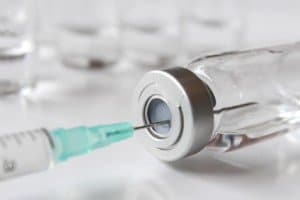
Get your annual exams and check up’s to stay healthy and prevent future medical problems.
Medical preventive care is defined as services your doctor provides to help you both avoid health problems and detect any issues you may have early on, when they would be more likely to respond to treatment. This is important for all citizens, as it is the most proactive way to manage your future health. However, because your body’s immune system weakens as you age, preventive care for seniors is especially important. To drive home the importance of preventive care, the healthcare organization Partnership for Prevention reports the following:
- If the number of adults who took aspirin daily to prevent heart disease rose from 50% to 90%, 45,000 additional lives would be saved each year.
- If the number of smokers receiving help from their physician to quit rose from 28% to 90%, 42,000 additional lives would be saved each year.
- If the number of adults up to date with their colorectal cancer screenings rose from 50% to 90%, 14,000 additional lives would be saved each year.
- If the number of adults 50 and older getting a flu shot annually rose from 37% to 90%, 12,000 additional lives would be saved each year.
- If the number of women age 40 and over who are screened for breast cancer at least once every two years rose from 67% to 90%, an additional 3,700 lives would be saved each year.
The following preventive care services are highly recommended for older adults.
- A bone density test is necessary for women 65 and older, who are at high risk for osteoporosis.
- Cholesterol screening is important for men 35 and older and high-risk women 45 and older, as high cholesterol can increase your chances for heart attack or stroke.
- Two out of every three new cases of colorectal cancer are found in adults 65 or older. This makes yearly colorectal cancer screening especially important for those age 50 to 75.
- Screening for diabetes is recommended, as nearly one in four adults 60 and over have the disease.
- Because approximately 85% of deaths from influenza are in people age 65 or older, it is important to obtain an annual influenza vaccination.
- Nearly half of all new breast cancer cases are discovered in women age 65 and over. This is why it is recommended that between the ages of 50 and 74, women have a mammogram every two years.
- Because pneumonia can be life-threatening, obtaining a Pnumococcal vaccination is essential for senior citizens.
For those using Medicare, many preventive care items can be obtained without copay as long as they are received from an approved physician. Preventative care should be done all year long and not just for New Year’s resolutions for seniors.


